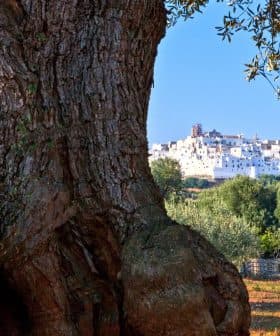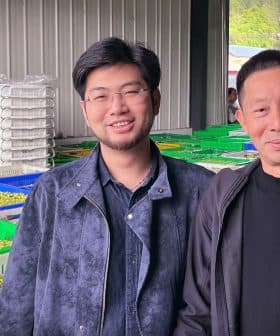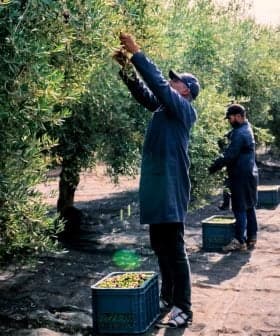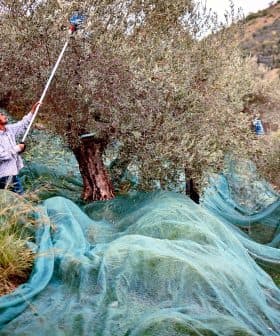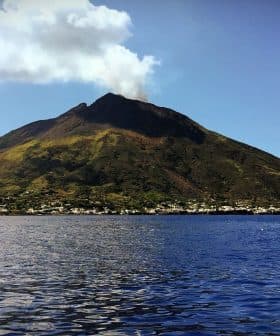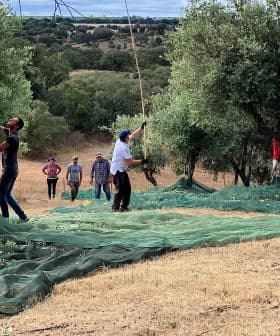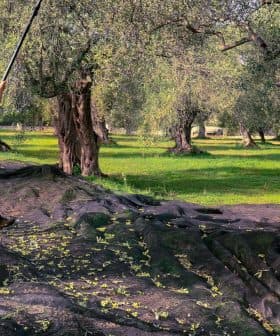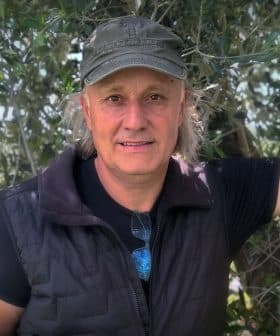At Rastrello, Quality Extra Virgin Olive Oil Promotes the Beauty of Umbria
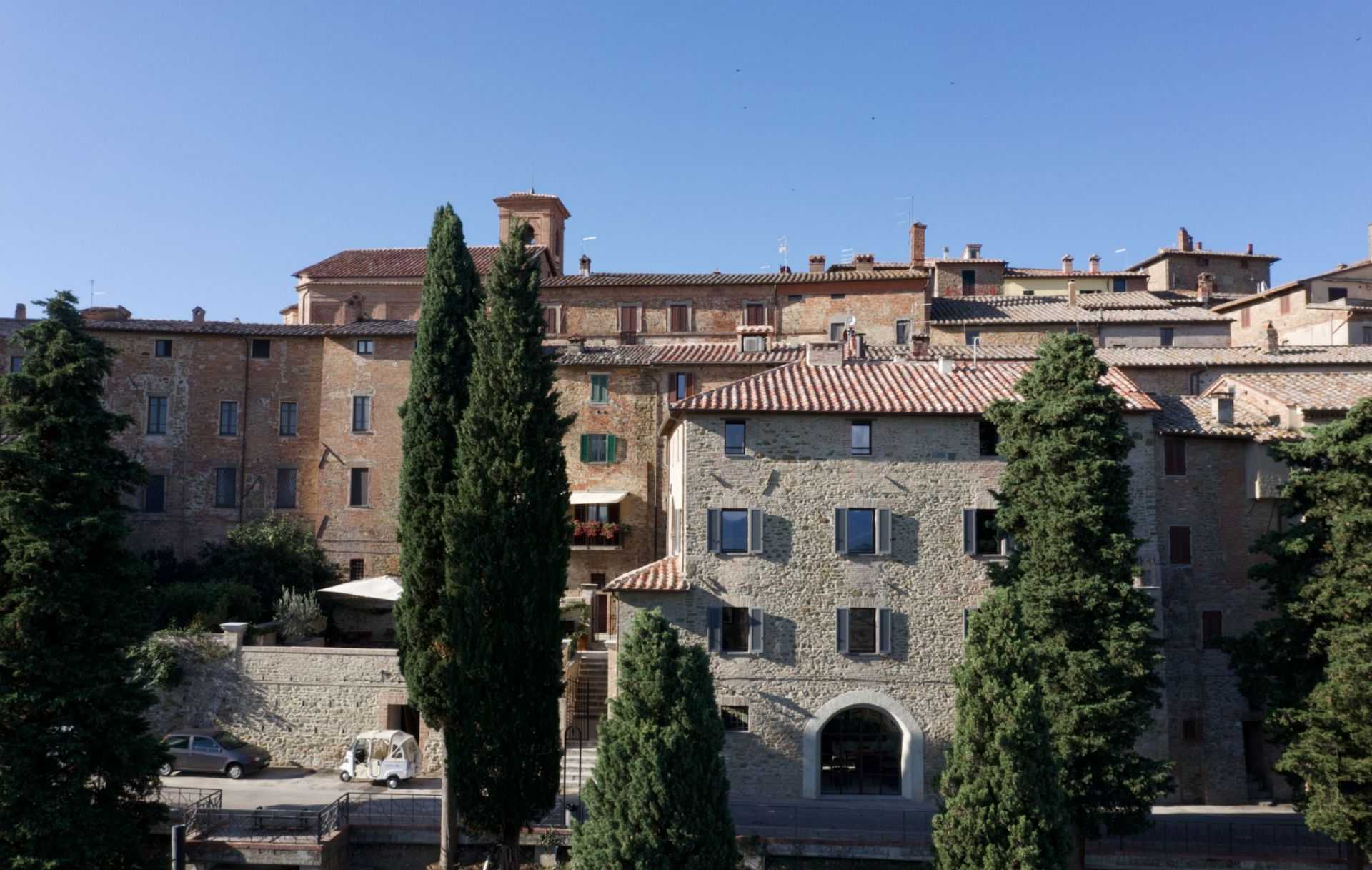
The Wassmann family has been cultivating olives in Panicale, Italy for over 20 years and recently won their second consecutive Gold Award at the 2021 NYIOOC World Olive Oil Competition. The family’s commitment to sustainability, respect for the environment, and passion for their land has led them to expand their olive oil production and create a boutique hotel that showcases their products and values.
For more than 20 years, the Wassmann family has cultivated olives on the undulating hills around Panicale in central Italy.
The producers behind Rastrello are currently celebrating their second consecutive Gold Award at the 2021 NYIOOC World Olive Oil Competition.
Rastrello is the small hand rake used during the olive harvest and it is a core part of local culture, which I wanted to enhance and communicate.
“We are so happy; we are over the moon,” Elida Wassmann, the co-owner of Rastrello, told Olive Oil Times. “It is a great honor and such a beautiful thing. When you win an award like this, you tell yourself: ‘Wow, we really did a great job.’”
The family’s second award in as many entries at the world’s most prestigious olive oil quality competition has validated the long process that began when Wassmann and her husband first arrived in Panicale about 25 years ago.
See Also:Producer Profiles“When we first arrived and saw the house immersed in the olive trees, we fell in love with this place,” she said.
Born in Portugal, Wassmann is an American who has lived all over the world. However, after decades of travel, she finally settled in the small commune in Umbria.
“My parents, an airline pilot and a flight attendant, traveled a lot,” she said, describing the steps that led her to the beautiful village. “In 1970, when I visited them in Nicaragua, I met my husband, Günter, who is German.”
“We lived there until the beginning of the revolution when we went to Arizona,” she added. “Both of us had already been to Italy and liked it so much. In 1996, we discovered this place, and, in 2000, we moved for good.”
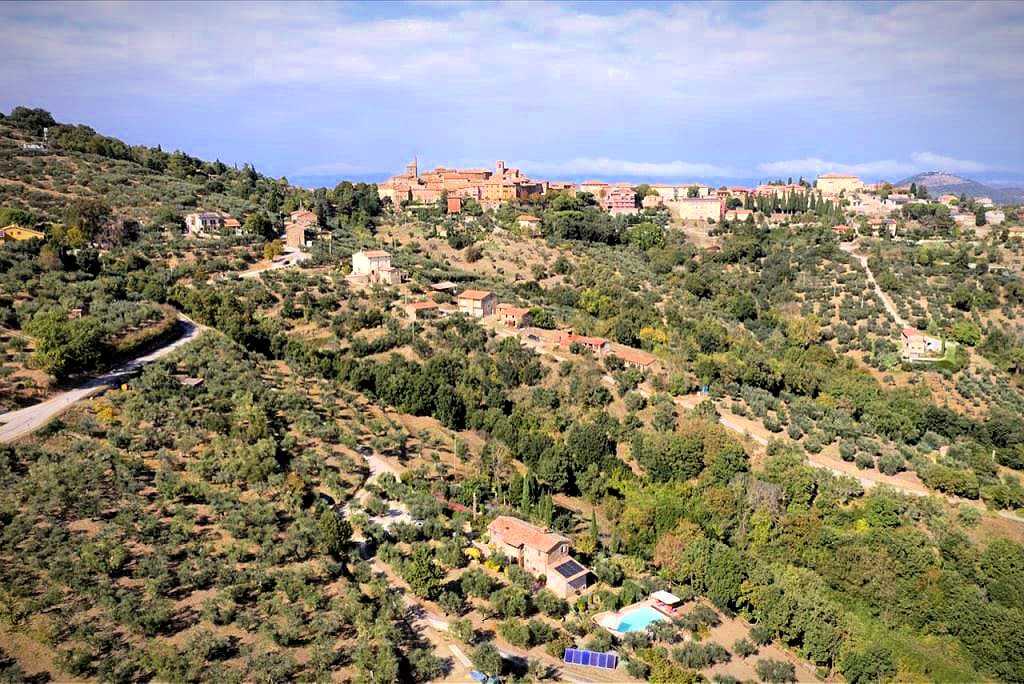
The couple passed down their cosmopolitan attitude and affection for the land to their children, especially Lydia, who is in charge of the farm’s international sales, and Christiane, who created a beautiful receptive structure.
“At the beginning, there were only 75 olive trees, which gradually have become more than a thousand, spread over six hectares,” Wassmann said. “We have recovered some olive groves that had been abandoned for several years and were so overgrown; they had become like woods. In restoring them, we respected the balance of the plants and the landscape.”
Wassmann added that part of the orchard was replanted, keeping the original pattern, placing the trees slightly more than six meters away from each other.
“A large portion of the grove is made up of splendid century-old plants, most of which are Dolce Agogia, and about one-third consist of ancient olive trees that we are trying to identify,” she said.
Frantoio, Moraiolo, Leccino, Pendolino and Rosciolo complete the composition of the orchard, nestled in the hills south of Panicale. The names of these varieties also adorn Rastrello’s boutique hotel rooms, which are located in the 500-year-old Palazzo Grossi in the village.
“I am an olive oil sommelier and wanted to join my olive oil knowledge into our hotel concept,” Christiane Wassmann said. “After the renovation of the spaces, carried out respecting the history of the original structure, we chose the same name of our extra virgin olive oil. Rastrello is the small hand rake used during the olive harvest and it is a core part of local culture, which I wanted to enhance and communicate.”
Her goal is to convey the beauty and the quality products of this part of Umbria, the territory of Lake Trasimeno, to everyone who comes to visit.
See Also:2021 NYIOOC Coverage“We offer our guests our farm-to-table food and drinks,” she said. “They can taste specialties like our martini, fat-washed with extra virgin olive oil, and the extra virgin olive oil gelato, all of which highlights the taste and aromas of our flagship product, that comes from the land that overlooks the lake.”
The guests of Rastrello have the opportunity to participate in tastings, cooking classes focused on olive oil and field experiences, including the olive harvest.
“We invite them to live our beautiful olive grove, where they can find olive trees that are the same age as our structure,” Wassmann said. “There is a strong connection between our work and the love for these plants. They contribute to the beauty of this territory, which we nurture and also enhance utilizing respectful and sustainable actions.”
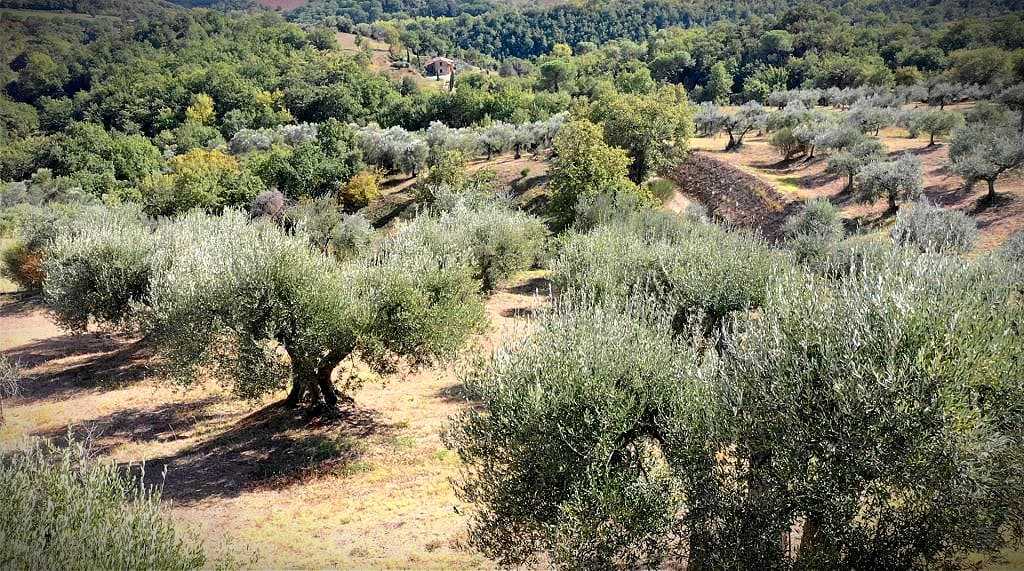
Sustainability is a fundamental principle for the family company, which has implemented resource reuse and saving systems, starting from the application of solar and photovoltaic panels to produce energy. Their farming method also entails low-impact practices, including the use of natural fertilizers.
“Our work is as natural as possible,” Elida Wassmann said. “I believe that we are what we eat. Thus the protection of the environment, preservation of biodiversity and care for the territory has become for us a mission.”
Every two or three years, the family acquires a small plot and plan to restore the abandoned lands while expanding their olive oil production.
“There is always so much to do,” Wassmann said. “Yet, my husband and I have such a great passion for our land that even the hardest work is no burden, and we spend most of our time between the olive grove and the vegetable garden.”
During pruning and harvest season, they are supported by a group of collaborators. The careful and constant work of a year culminates with a harvest at the proper time. The fruits are crushed in a local mill of the latest generation that allows them to obtain an excellent final product.
“We started producing olive oil for our own consumption and we ended up getting so passionate that we still did not stop to build the beautiful things around this wonderful product, the most recent of which is our hotel,” Wassmann said.
“Initially, we produced oil just for fun. We invited friends for the harvest and had many lunches in the olive grove,” she added. “This aspect of enjoyment has remained, but it has been enriched by a commitment that allows us to communicate better our message of sustainability, respect and, in the end, beauty.”
“We respect the territory, which means also respecting people,” Wassmann concluded. “We try to do a quality job, which is more than a job. I can say it is a matter of love and we are trying to transmit this to our five grandchildren. We want to educate them to work with love and cultivate beauty.”


